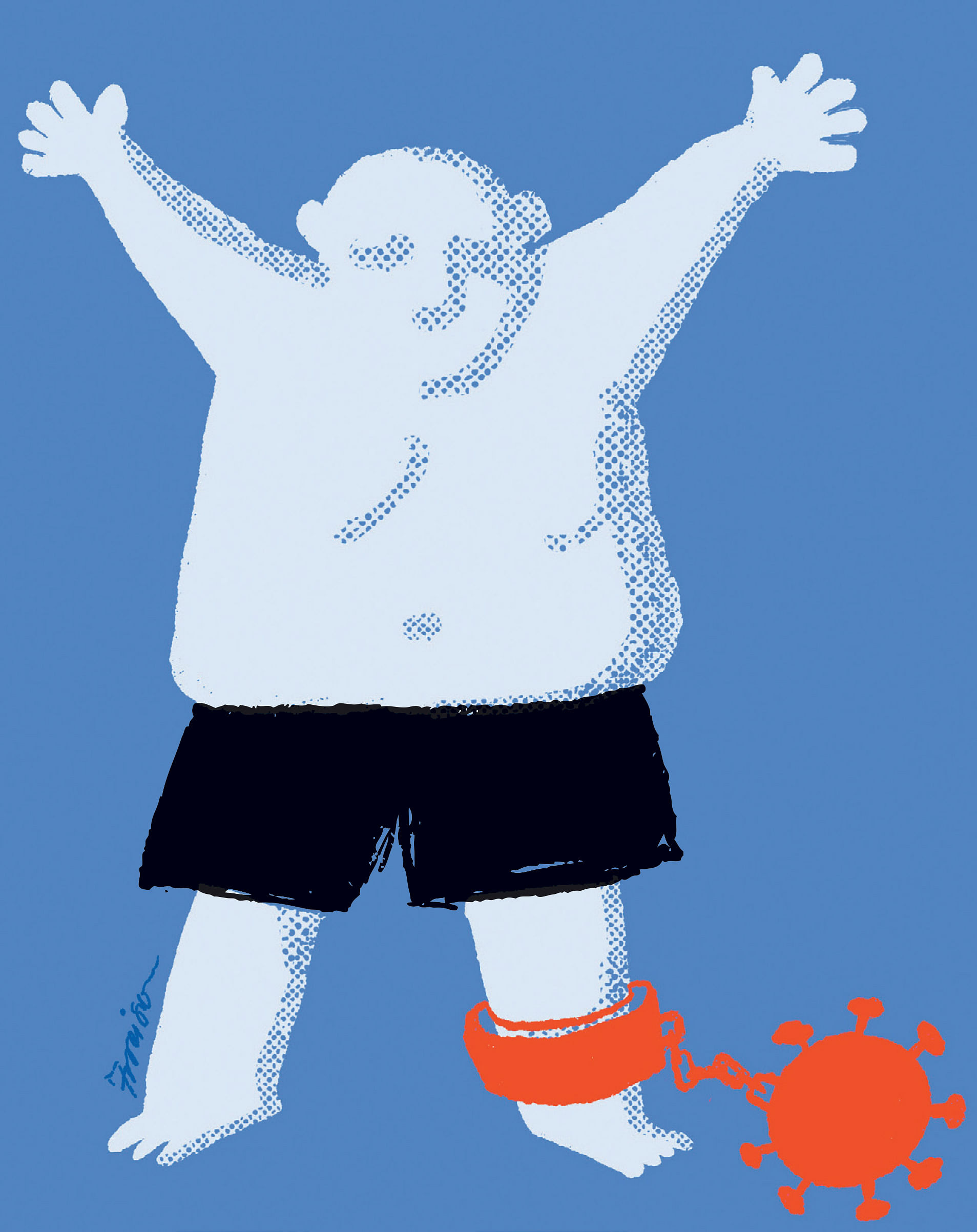There is now more research that suggests people who are obese and overweight have a higher risk of developing Covid-19, particularly a more severe form of the disease.
It's not only that, but once they end up in the intensive care unit, their risk of dying from Covid-19 is two to three times higher than that of a Covid-19 patient of normal weight.
The main reason obese patients have a higher risk of getting Covid-19 and becoming severely ill with it is because the coronavirus has an affinity for ACE2 receptors, which are also present in fat.
ACE2 is a protein on the surface of many cell types that acts as a receptor for the coronavirus to get into cells.
So, the more fat one has, the more ACE2 receptors he will have. Obese patients thus end up with a higher viral load.
The excess fat also leads to decreased movement of respiratory muscles, such as the diaphragm and thus, when obese persons contract the respiratory virus, they have an increased risk of developing complications that require intensive care.
Another thing is that obese patients also have other co-morbidities, mainly diabetes, though it can be hypertension, asthma, lung and heart disease. These conditions add to their chronic inflammatory state, giving them an exaggerated response and worse outcome.
People with diabetes are generally at increased risk of infections, including influenza and bacterial pneumonia, as their immunity weakens if their blood sugar levels are not well controlled.
If these people are also obese, their immunity is likely further weakened, hence putting them at higher risk of becoming more ill with Covid-19 when infected.
Obesity and diabetes very often result from - or are made worse by - poor lifestyle choices, including poor health choices, smoking and a sedentary lifestyle.
These factors on their own already contribute to an increased risk of infection.

So, should people with obesity adopt more precautions in this Covid-19 pandemic?
We think there is no need to, though it is important that they are aware they are at greater risk of developing more severe infections with Covid-19.
This awareness will spur them to take the correct precautions recommended by the Ministry of Health, including social distancing, good personal hygiene and wearing a mask when out.
We also recommend the following:
• Make sure you have all the relevant contact details on hand, including your family's and medical practitioner's contacts in case you fall ill unexpectedly.
• If you have diabetes, be mindful of your blood sugar control. This is especially true as any infection can cause a rise in your blood sugar levels.
With regard to food, try to give priority to foods with a low glycaemic index, such as vegetables, brown rice and whole-wheat food.
Choose lean proteins and eat green leafy vegetables and fruits. Snack less in order to limit the consumption of foods high in sugar, carbohydrates and fat.
• Try to keep a regular schedule. Avoid overworking, get adequate sleep and exercise as much as possible.
• Those who are morbidly obese and have poorly controlled diabetes may consider undergoing bariatric surgery, which is also known as metabolic surgery.
This is where we make your stomach smaller with the use of a band or other methods so that you will get used to eating the amount that you need and no more.
It is recommended for those who have a body mass index (BMI) of more than 32.5 and co-morbidities such as diabetes, hypertension and high cholesterol.
Those who have a BMI of more than 37.5 can consider it, even if they do not have any co-morbidities.
Surgery can also be done if your diabetes is not under optimal control despite medications, as this can lead to serious complications such as kidney damage, liver damage, heart attacks, stroke and a Covid-19 infection.
Those who choose to have bariatric surgery will reduce their risk of having Covid-19, though not immediately.
Bariatric surgery will result in relatively rapid weight loss, but it takes time and the individual still needs to make the effort to maintain his or her weight after that.
The benefits of the surgery will be evident after about three to six months, when the individual loses 10 to 15 per cent of his or her excess body weight loss.
•Dr Ben Ng Jen Min is from Arden Endocrinology Specialist Clinic and Dr Jaideep Raj Rao is from Arden JR Surgery Specialist Clinic at Mount Elizabeth Novena Hospital.
